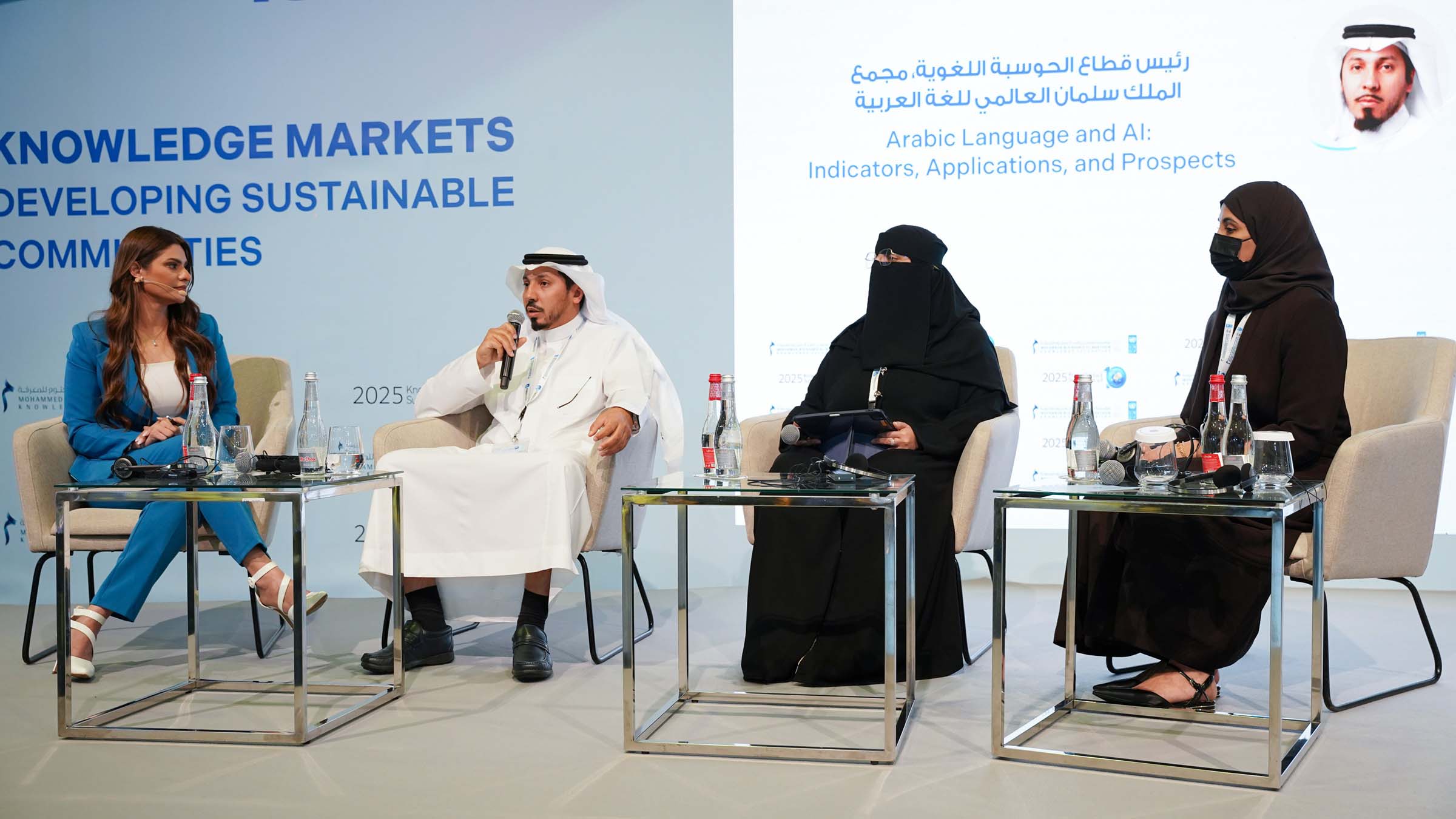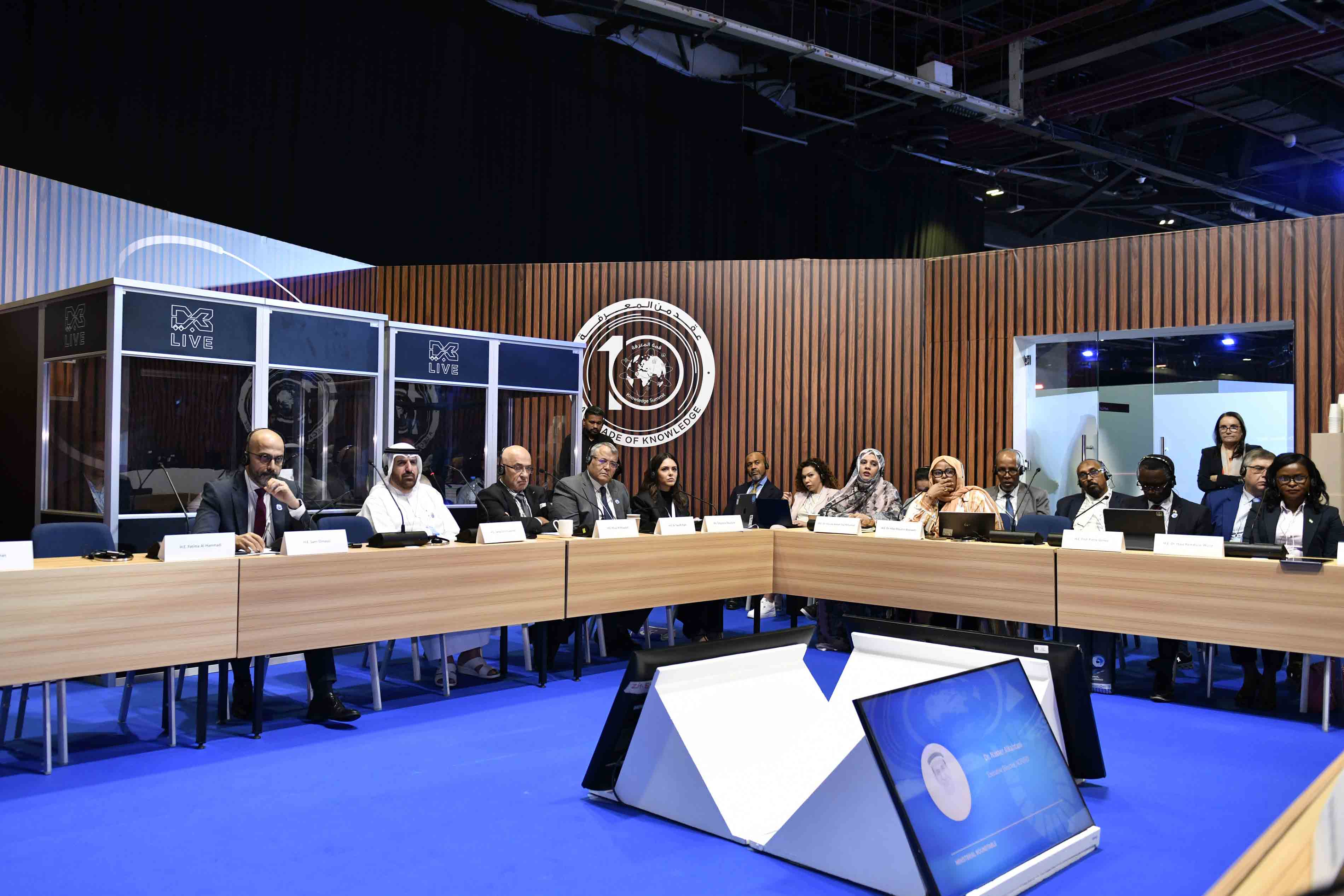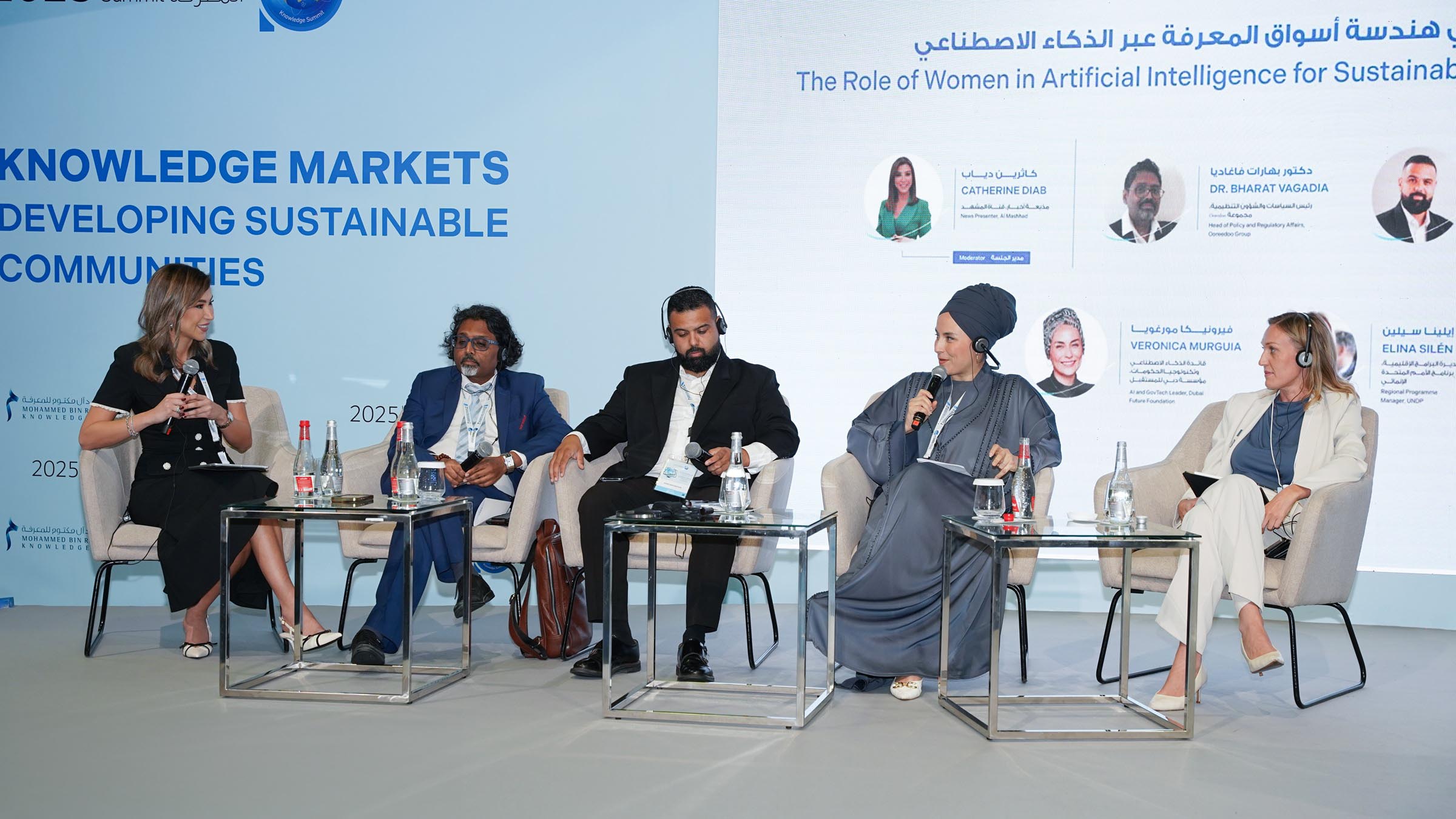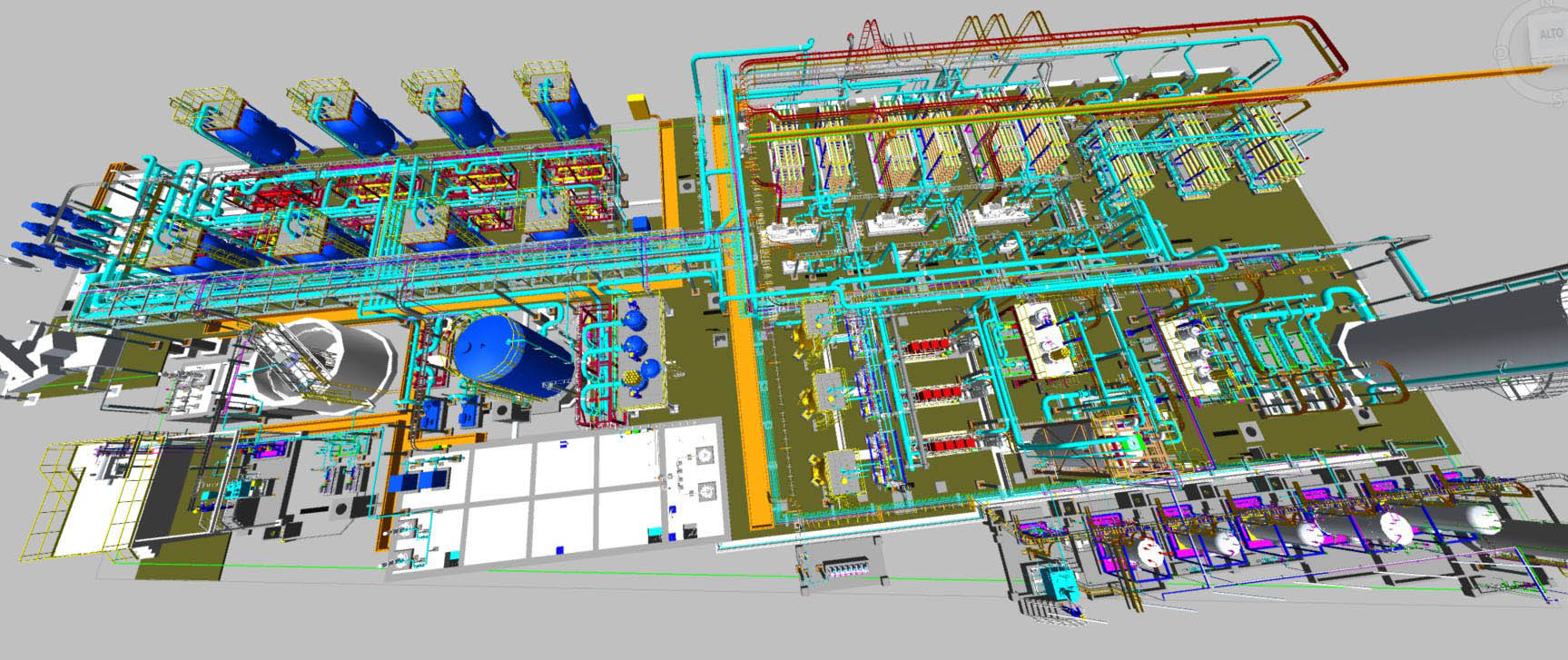AI drives new momentum for fostering the Arabic language

Dubai, UAE, 20 November 2025- Participants in a panel titled “Arabic Language and Artificial Intelligence: Indicators, Applications, and Prospects” at the Knowledge Summit 2025 emphasized that the rapid evolution of artificial intelligence (AI) technologies offers a historic opportunity for the Arabic language—provided that a solid linguistic and knowledge-based infrastructure is in place to guide this transformation. Speakers stressed that meaningful progress requires full integration between research institutions, technical models, and trusted data sources, forming what they described as the most effective pathway for building an advanced Arab future in AI.
Linguistic Infrastructure
Athir Al-Khalifa, Director of Labs at the King Salman Global Academy for Arabic Language (KSGAAL), noted that modern linguistic systems demand more than advanced technological platforms. “They require a holistic ecosystem built on reliable data and institutions capable of developing large-scale Arabic language models,” she said.
Al-Khalifa highlighted the Center for Arab Intelligence, launched last April, which houses five specialized labs, including phonetics, virtual reality, and a research lab. It also provides cooperative training programs for university students who have already contributed to building mini language models, research papers, and platforms. “The integration of efforts,” she added, “creates a unified Arab ecosystem that truly serves artificial intelligence.”
Benchmark for Arabic
Rawan Almaatham, Director of Research and Innovation at KSGAAL, spoke about the journey of BALSAM Index, a tool designed to assess the accuracy of Arabic LLMs. The concept was first proposed during an event in Singapore in 2023, before being adopted by KSGAAL in collaboration with ten partner institutions to develop a unified evaluation tool.
She said the BALSAM Index brings together initiatives that were previously scattered, offering a trusted reference point that ensures the quality of Arabic content, at a time when social media platforms are flooded with inaccurate or misleading information.
1,500 Years of Knowledge
Dr. Abdullah bin Yahya Al Faifi, Head of the Linguistic Computing Sector at KSGAAL, emphasized that Arabic has long served as a primary vessel of global knowledge for more than 1,500 years. Its sophisticated morphological, semantic, and contextual structure, he said, positions it to continue generating and transmitting knowledge across generations.
Al Faifi also underscored that one of the most pressing challenges is the shortage of linguistic data, as Arabic accounts for only about 3% of the content available online. The lack of documenting the vast diversity of dialects adds another layer of complexity.
To address this gap, KSGAAL has built a spoken corpus featuring 54 documented Arabic dialects recorded over 2,500 hours of audio. This resource offers invaluable material for researchers and supports the creation of AI models capable of understanding linguistic and contextual nuances. He added that the shortage of specialized talent remains a major challenge requiring systematic and long-term solutions.
-end-










